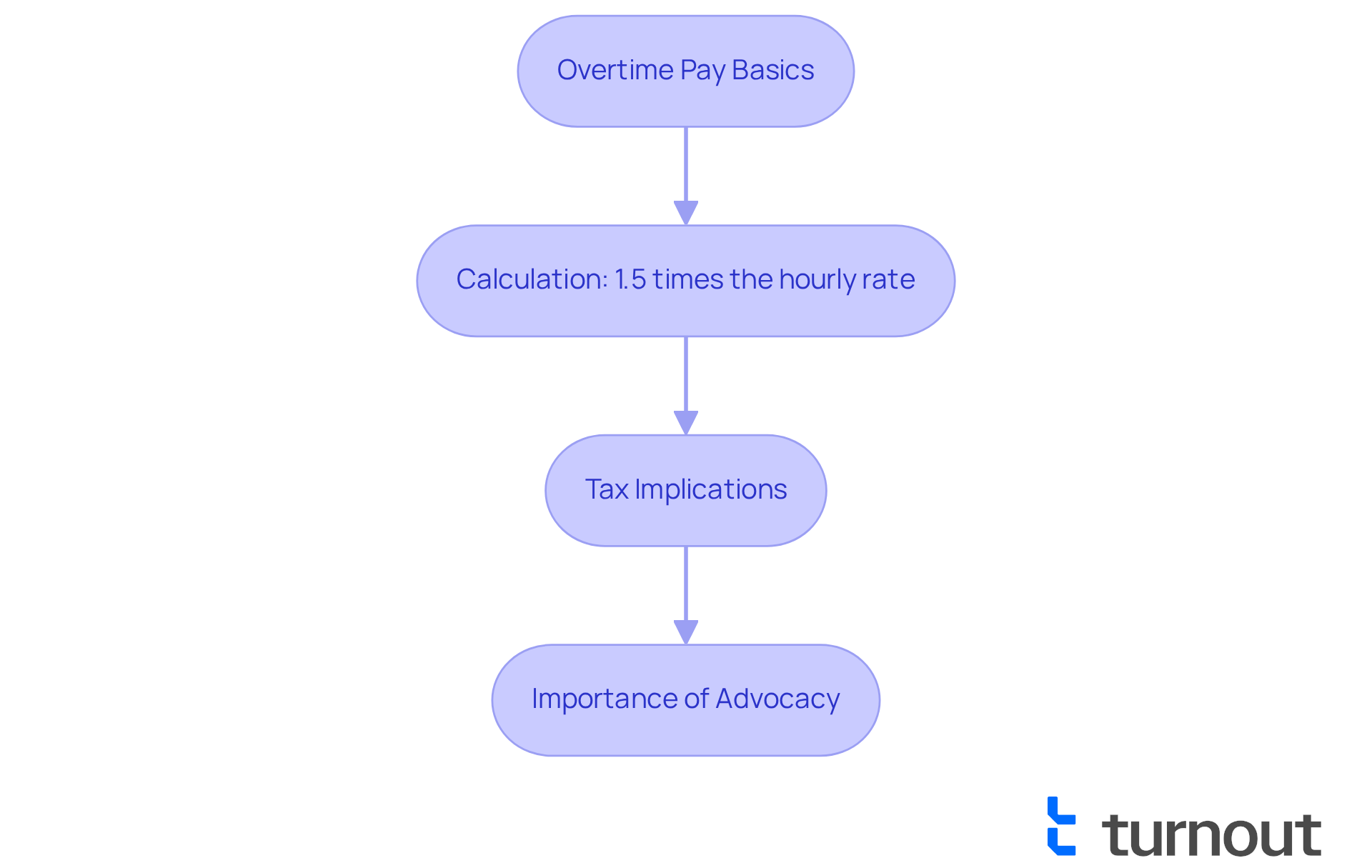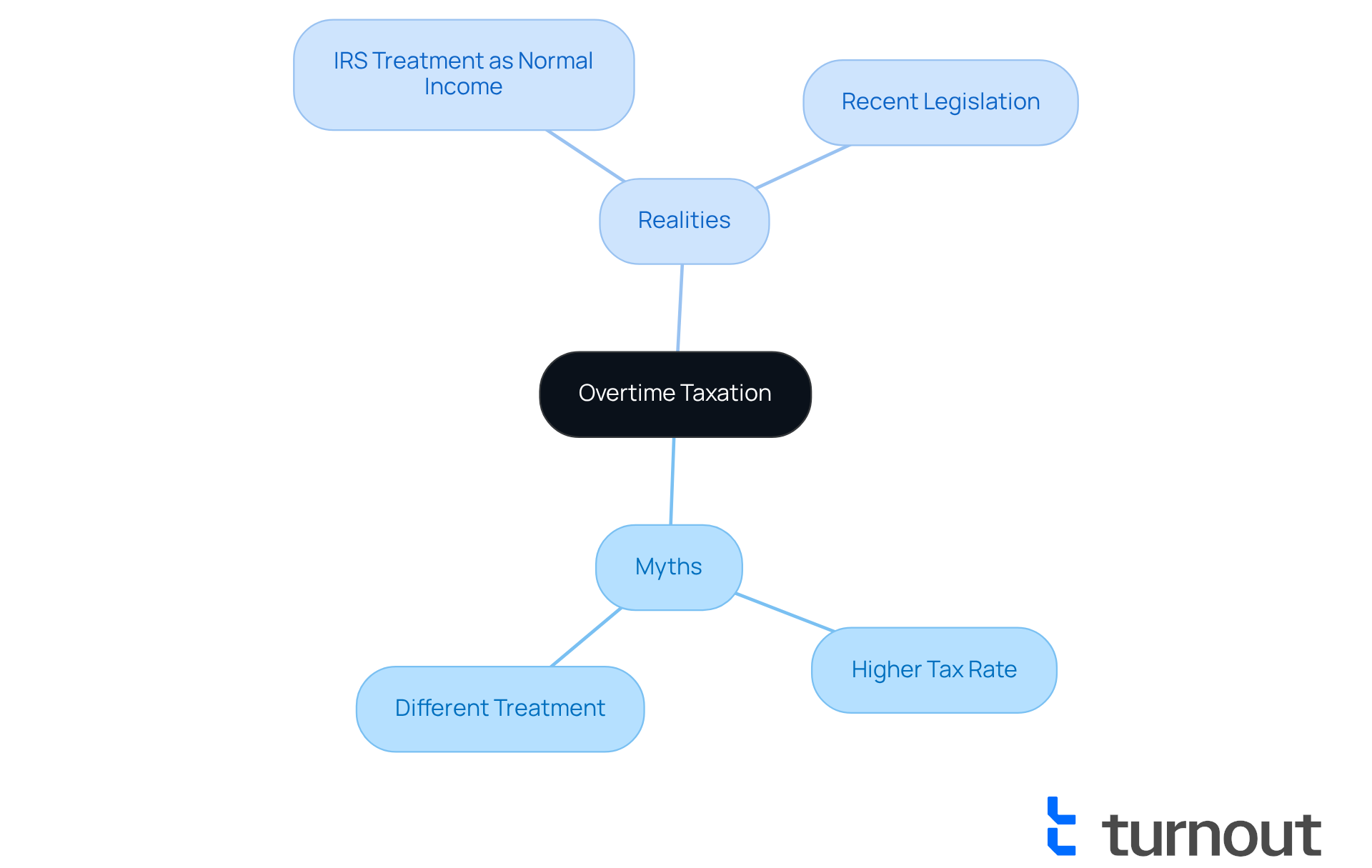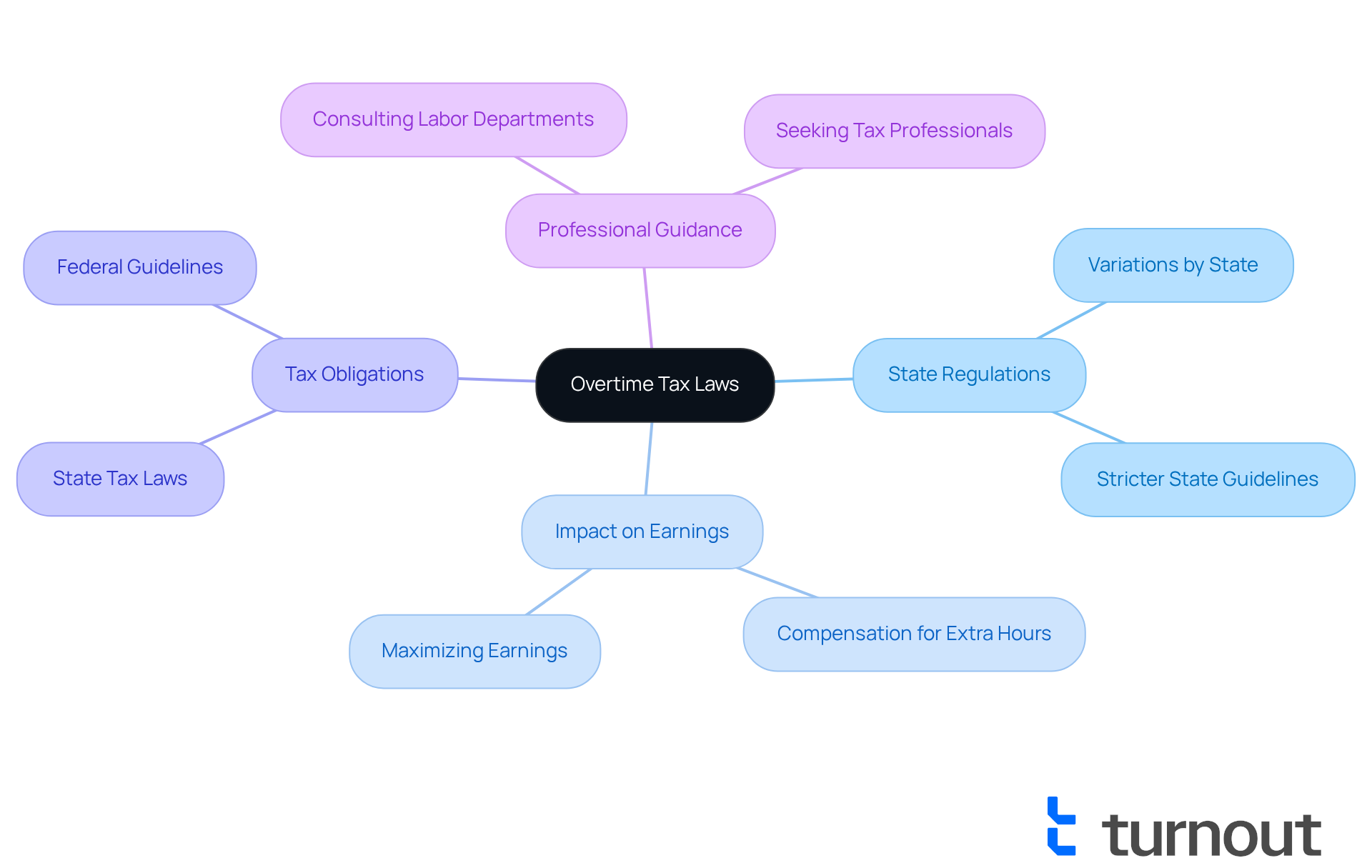Overview
We understand that navigating the complexities of overtime taxation can be confusing. It's important to know that overtime is taxed as regular income, meaning it falls under the same tax rates as standard wages. This debunks the common myth that overtime is taxed at a higher rate. While recent legislation may introduce certain deductions, the fundamental tax treatment for overtime remains unchanged. This allows you to effectively plan your finances with confidence. Remember, you're not alone in this journey, and we're here to help you understand your options.
Introduction
Understanding how overtime pay is taxed is crucial for workers navigating the complexities of their compensation. We recognize that overtime can represent a significant portion of earnings for many, and the implications of taxation can directly affect your take-home pay. It's common to feel uncertain about finances when misconceptions abound regarding whether overtime is taxed at a higher rate.
What are the real truths behind overtime taxation? How can you ensure that you are maximizing your earnings while adhering to the law? We're here to help you find clarity in this important area.
Define Overtime Pay and Its Importance
A common question regarding overtime pay is how does overtime get taxed, as it represents the additional compensation that workers receive for hours worked beyond the standard 40-hour workweek, typically calculated at 1.5 times their regular hourly salary. We understand that navigating pay structures can be challenging, but this system is vital. It not only incentivizes employers to manage work hours effectively but also ensures that you are fairly compensated for your extra efforts.
Understanding whether and how does overtime get taxed is essential for you to advocate for your rights and ensure you receive the compensation you deserve. Recent changes in tax regulations regarding compensation raise questions about how does overtime get taxed and may add to the confusion. Remember, you're not alone in this journey, and we're here to help you navigate these complexities. By being informed, you can champion your rights and secure the remuneration that reflects your hard work.

Explore Overtime Taxation: Myths and Realities
Many workers worry about whether overtime gets taxed at a higher rate than their standard earnings. It’s common to feel this way, but we want to clarify that this is a myth. The IRS treats extra pay as normal income, which leads to the question: does overtime get taxed, meaning it is subject to the same taxes as your regular wages.
Recent legislation, like the One Big Beautiful Bill Act, has introduced provisions for certain deductions on extra work pay. However, the fundamental tax treatment remains the same. Understanding these realities is essential for you to accurately assess your take-home pay.
By understanding how overtime gets taxed, you can plan your finances more effectively. Remember, we’re here to help you navigate these complexities. You are not alone in this journey.

Calculate Overtime Pay and Tax Withholding Accurately
We understand that navigating extra compensation can be challenging. To begin, identify your standard hourly wage. By multiplying this figure by 1.5, you can determine your additional compensation. For instance, if your standard payment is $20 per hour, your additional payment would be $30.
Next, think about how many extra hours you worked. If you worked 10 additional hours, your total pay would be $300 (10 hours x $30). It's common to feel uncertain about how overtime gets taxed as well. To help with this, utilize the IRS withholding tables or a tax calculator. This will show you how much should be deducted from your additional earnings based on your total income and filing status, including whether overtime gets taxed.
By preparing in advance for tax season, you can avoid surprises and feel more in control. Remember, we're here to help you through this process, and you are not alone in this journey.

Understand Regional Variations in Overtime Tax Laws
Understanding overtime pay laws can be overwhelming, especially since they vary significantly by state. It's important to recognize how these differences can impact your earnings and tax obligations. For example, some states impose stricter regulations on extra hours than federal guidelines. This means that employers may need to compensate employees for hours worked beyond 8 in a day, rather than just 40 in a week.
Additionally, state tax laws can influence how overtime gets taxed differently. We understand that navigating these complexities can be challenging, which is why it's crucial to consult your state’s labor department or a tax professional. They can provide clarity on the specific laws that apply to you.
Being aware of these regional variations is not just about compliance; it's also about maximizing your earnings. Remember, you are not alone in this journey. We're here to help you understand your rights and ensure you receive the compensation you deserve.

Conclusion
Understanding the intricacies of overtime pay and its taxation is crucial for workers striving to secure fair compensation for their efforts. We understand that overtime represents not just additional hours worked, but also an opportunity for employees to advocate for their rights and ensure they are compensated appropriately. By grasping how overtime is taxed, individuals can navigate their financial landscape with greater confidence and clarity.
Throughout this article, we have shared key insights regarding the realities of overtime taxation, dispelling common myths that suggest overtime is taxed at a higher rate. It has been emphasized that overtime pay is treated as regular income by the IRS, and understanding the calculation process is essential for accurate financial planning. Additionally, it’s important to be aware of regional variations in overtime laws, which can significantly impact earnings and tax obligations.
In conclusion, empowering oneself with knowledge about overtime pay and taxation is not just about compliance; it is about maximizing potential earnings and advocating for one's rights. As changes in tax regulations continue to evolve, staying informed and proactive is essential. You are not alone in this journey. We encourage workers to consult professionals and utilize available resources to ensure they receive the compensation they rightfully deserve.
Frequently Asked Questions
What is overtime pay?
Overtime pay is the additional compensation that workers receive for hours worked beyond the standard 40-hour workweek, typically calculated at 1.5 times their regular hourly salary.
Why is overtime pay important?
Overtime pay is important because it incentivizes employers to manage work hours effectively and ensures that employees are fairly compensated for their extra efforts.
How does overtime get taxed?
Overtime pay is subject to taxation, and understanding how it is taxed is essential for employees to advocate for their rights and ensure they receive the compensation they deserve.
Are there recent changes in tax regulations regarding overtime pay?
Yes, recent changes in tax regulations regarding compensation may raise questions about how overtime is taxed and can add to the confusion for employees.
How can employees navigate the complexities of overtime pay and taxation?
By being informed about overtime pay and its taxation, employees can advocate for their rights and secure the remuneration that reflects their hard work.




